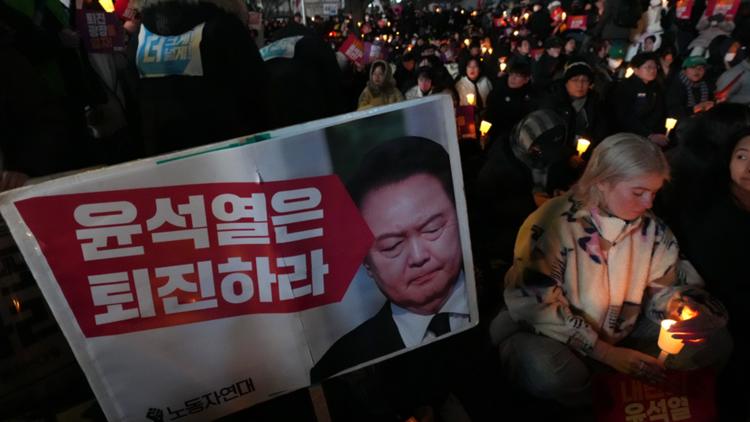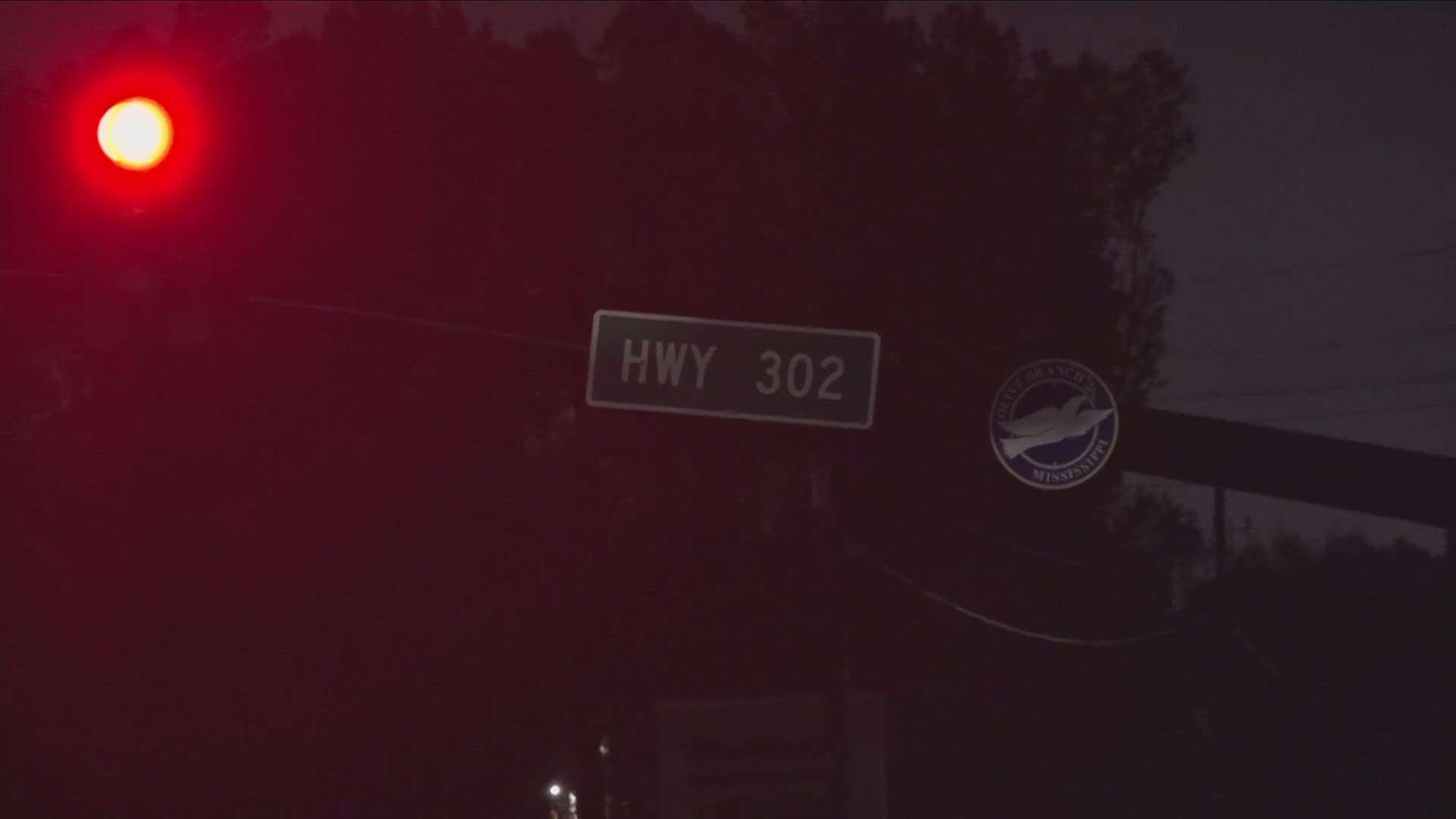SEOUL, South Korea — South Korea’s president replaced his defense minister Thursday as opposition parties moved to impeach both men over the stunning-but-brief imposition of martial law that brought armed troops into Seoul streets.
The Democratic Party and other small opposition parties submitted a joint motion to impeach President Yoon Suk Yeol on Wednesday over his martial law declaration the previous night. Martial law lasted about six hours, as the National Assembly quickly voted to overrule the president, forcing his Cabinet to lift it before daybreak Wednesday.
Jo Seoung-lae, spokesperson of the Democratic Party, said it will push for a National Assembly vote on Yoon's impeachment motion on Saturday, calling his martial law declaration an “unconstitutional, illegal rebellion or coup.”
On Thursday, Yoon’s office said he decided to replace Defense Minister Kim Yong Hyun with Choi Byung Hyuk, a retired general who is South Korea’s ambassador to Saudi Arabia.
Yoon’s office didn’t provide any further comments by him. He hasn’t appeared in public since his televised announcement that martial law was lifted.
The opposition parties earlier submitted a motion to impeach Kim, alleging he recommended that Yoon impose martial law. Kim had offered to resign and apologized for causing disruption and concern to the public. Kim said that “all troops who performed duties related to martial law were acting on my instructions, and all responsibility lies with me,” according to the Defense Ministry.
During a parliamentary hearing Thursday, Vice Defense Minister Kim Seon Ho said the decision to deploy troops at the National Assembly came from Kim Yong Hyun. Army chief of staff Park An-su, who served as head of the martial law command, said he didn't know how the troops were sent to parliament.
Kim Seon Ho also said he wasn’t informed about Yoon’s decision to impose martial law until the announcement was reported by the media. He said he didn’t know who wrote the military proclamation announced after Yoon’s martial law declaration, which stated that the activities of political parties would be suspended. Park said he proposed a legal review of the proclamation to Kim Yong Hyun, and Kim said a review had been completed.
“I had fundamentally opposed the deployment of troops over this martial law and I expressed a negative opinion about it,” Kim Seon Ho said. “I would like to apologize to our citizens once again, and, on a personal level, I feel devastated.”
Prosecutors in Seoul said they imposed an overseas travel ban on Kim Yong Hyun on Thursday.
Separately, opposition parties on Thursday voted to impeach Choe Jae-hae, chairman of South Korea's auditing board, and three senior public prosecutors. The four will be suspended until the Constitutional Court rules whether to remove them from office. Members of Yoon's governing People Power Party boycotted the votes, leaving the totals far over the threshold to impeach them.
Choe has been accused of softening a review of Yoon’s 2022 decision to move the presidential office from a downtown palace to the Defense Ministry compound, which critics saw as inexplicable waste of money. The prosecutors face accusations that they watered down an investigation into suspected stock price manipulation involving Yoon’s wife, Kim Keon Hee.
During his martial law announcement, Yoon described the Democratic Party’s continued attempts to impeach senior officials and prosecutors as “anti-state activities” and “paralyzing the government.”
The PPP said Thursday it has decided to oppose the motion to impeach Yoon. Observers say it could boycott a floor vote or cast ballots against the motion.
Impeaching the president would require support from two-thirds of the National Assembly, or 200 of its 300 members. The opposition parties together have 192 seats. Parliament's rejection of martial law passed unanimously Wednesday with support from 18 PPP lawmakers who belong to an anti-Yoon faction in the party.
But PPP leader Han Dong-hun, head of the anti-Yoon faction, told reporters Thursday he would work to defeat the impeachment motion even though he criticized Yoon’s declaration as “unconstitutional.” Han said there is a need to “prevent damage to citizens and supporters caused by unprepared chaos.”
Experts say PPP factions could unite to avoid what happened after the 2016 impeachment of conservative President Park Geun-hye with the votes of some lawmakers in her own party. After she was removed from office, the liberals easily won the presidency in a by-election as conservatives remained in disarray. She went to prison but was eventually pardoned.
If Yoon is impeached, he would be suspended until the Constitutional Court rules on whether to remove him from office or restore his presidential power. Prime Minister Han Duck-soo would take over presidential responsibilities.
The impeachment motion against Yoon says he failed to meet the constitutional requirement that martial law should only be considered in wartime or a comparable severe crisis. It alleges he attempted a “self-coup” by mobilizing the military and that suspending political party activities and deploying troops to seal the National Assembly amounted to rebellion.
Thousands of protesters marched in Seoul's streets Wednesday, carrying candles and signs calling for Yoon to step down, and another large anti-government gathering was expected Thursday evening.
Reflecting the country’s deeply polarized politics, hundreds of Yoon’s conservative supporters rallied in downtown Seoul on Thursday afternoon, holding signs criticizing Democratic Party leader Lee Jae-myung, seen as a potential successor to Yoon despite facing trials over various corruption allegations.
With Yoon’s declaration sparking concerns about South Korea’s democratic status, officials have been trying to mitigate backlash.
Foreign Ministry spokesperson Lee Jaewoong said the ministry sent diplomatic notes to foreign missions emphasizing that martial law was lifted through democratic procedures and that travel advisories need not change, as public safety remains stable.
When asked about the U.S. Embassy in Seoul's move this week to cancel routine consular operations, including visa and passport interviews, based on its assessment that South Korea’s “situation remains fluid,” Lee said Seoul was maintaining “necessary communication” with the Americans. The U.S. Embassy later on Thursday said those services were resumed.
Yoon’s martial law declaration came hours after his summit with Kyrgyzstan President Sadyr Japarov, who traveled to Seoul on an official visit. Swedish Prime Minister Ulf Kristersson reportedly canceled a plan to visit South Korea this week.
“We are continuously trying to ensure a seamless and consistent implementation of our ministry’s diplomatic policies,” Lee said.



